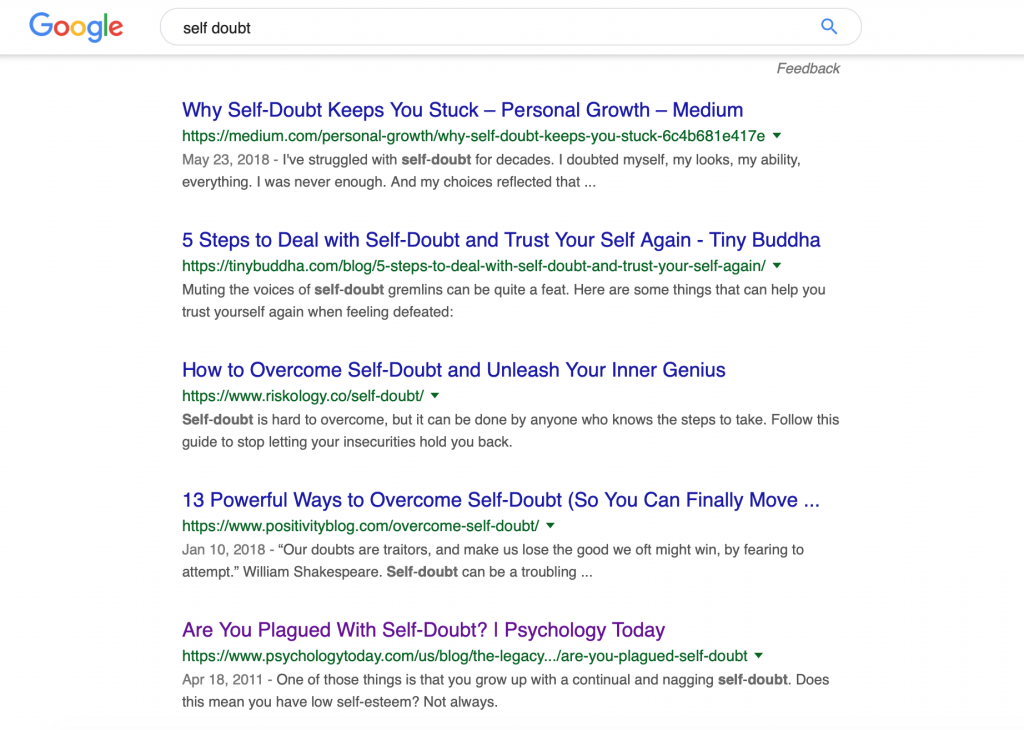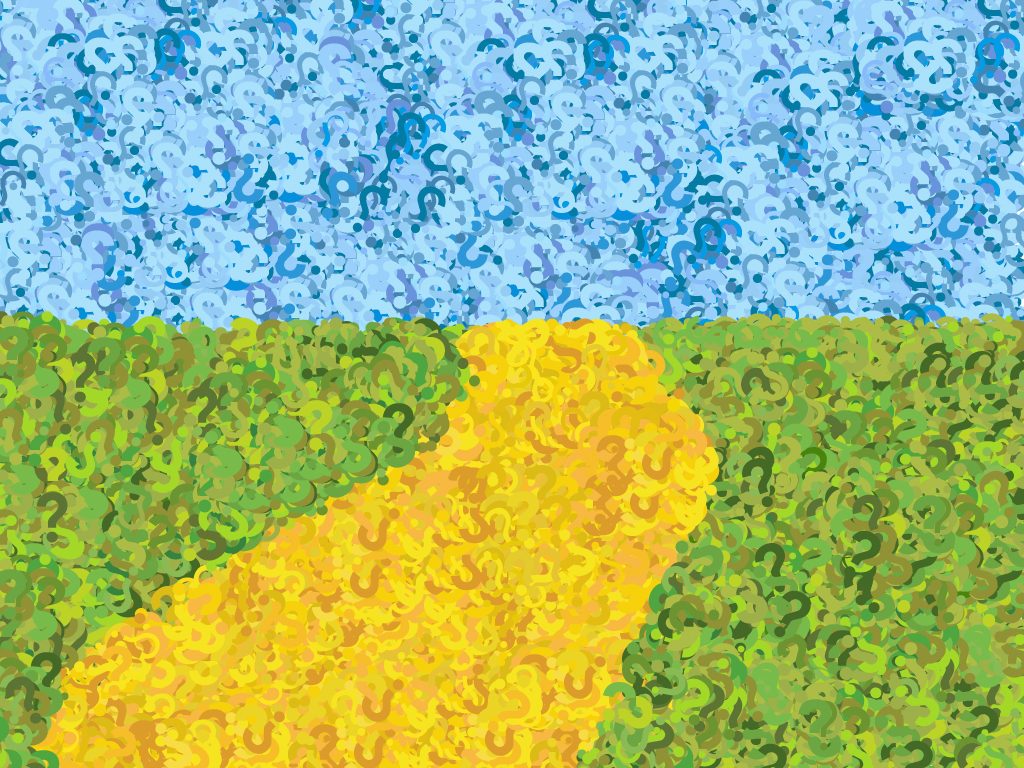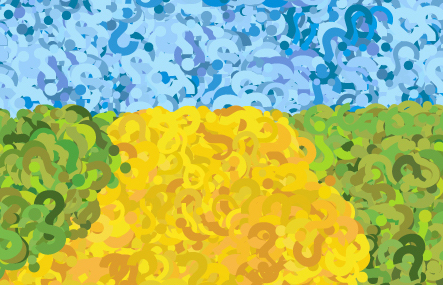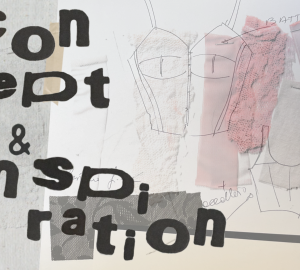Type in “self-doubt” in the Google search engine and you’ll get 473 million results. The first 10 pages are filled with articles on how to “defeat self-doubt,” “how to overcome self-doubt to achieve your goals” or “why self-doubt keeps you stuck.” The general consensus? Self-doubt is bad.
The definition of self-doubt is “a lack of faith in oneself: a feeling of doubt or uncertainty about one’s abilities, actions, etc.” Our culture champions confidence as the key to success — you must be confident in interviews, meeting a partner and in new friendships. Apparently, we can only achieve our goals by being certain of ourselves. No wonder our society considers self-doubt as an offense against humanity.
However, I think self-doubt is the key to self-improvement and personal growth. Let’s start with removing the term’s cultural baggage. The Oxford Dictonary defines doubt as to “feel uncertain about,” and “question the truth or fact of something.”
Voltaire, one of the Enlightenment’s key French philosophers, said, “doubt is not a pleasant condition, but certainty is absurd.” In the history of science, we see how the only certainty is uncertainty. People once believed the Earth was flat, and that human anatomy was the same as that of pigs. We no longer do. For hundreds of years, people believed slavery was justifiable and women were
Likewise, self-doubt is the examination you need for transformation. Doubting oneself is not a bad thing — it’s a process of reflection. For example, say you met your friend for lunch and he said something that made you angry (“this dress doesn’t suit you, does it?”). It could be truly offensive, or it could be totally innocuous, but regardless you became upset, accused him of insensitivity, cried and left the restaurant. Now, here is when you need to doubt and question your emotions — did your friend make you upset, or was it your insensitive professor who slammed your project in front of the whole class?
If it’s the latter, you’d come to realize you didn’t direct your emotions towards the right person — your friend became the scapegoat of your burden. You became aware of your action, you apologized and started to pay attention to this tendency so it wouldn’t happen again. Psychologist Carl Jung said,“Everything that irritates us about others can lead us to an understanding of ourselves.” A healthy dose of self-doubt can improve interpersonal relationships.
Let’s analyze another example. You just finished a month-long project. You were proud of it and showed it to everyone who loved and supported you. They praised you, and you thought the project was perfect. Then there was one friend that said they wanted to give you some suggestions and critique the work. How dare they! You went into a rage and decided they were wrong because your work was great — everyone said so.
“Knowing yourself is the beginning of all wisdom.”
– Aristotle
It’s always important to question the base of our confidence. Was your work genuinely great, or was it actually pretty crappy and required improvement that you overlooked because of an inflated ego? Perhaps the answer to that is to have more humility. Examining certainties and confidence leads to better intrapersonal communication that aids your personal growth.
We need to give credit to our devil’s advocate because often times they are the real angels who propel us to greater internal clarity. That angel who supported you? They might have just been trying to stroke and please your ego, leading to self-deception. While self-doubt is not a pleasant condition, neither is being stagnant in personal growth. Being entrenched and committed to one’s ignorance leads you to more interpersonal and intrapersonal conflicts. Feelings of frustration have meaning because they give you clues to discover your mental processes, limited beliefs and levels of emotional intelligence.
Fourth-year graphic design student Ashley Stewart drew symbolic illustrations for this article. It’s a yellow brick road, inspired by the one from “The Wizard of Oz,” made entirely of question marks. Like the yellow brick road, our journey to self-discovery is full of uncertainty and doubt, but our path is also unique and full of opportunities for transformation.
I will end with this quote: life coach and New York Times best-selling author Iyanla Vanzant said, “The journey into self-love and self-acceptance must begin with self-examination … until you take the journey of self-reflection, it is almost impossible to grow or learn in life.” May we all embrace our self-doubts and flourish.

























